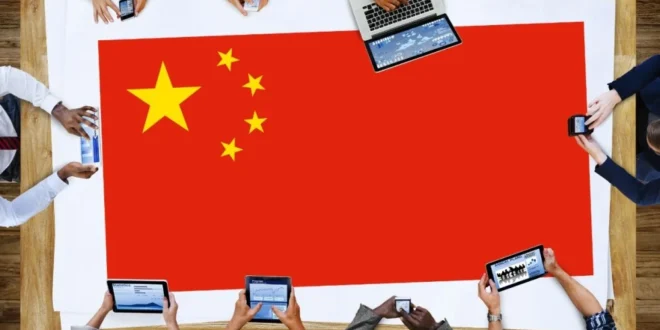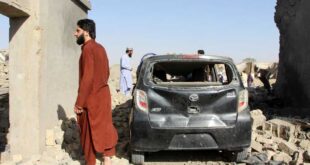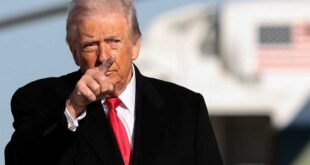The study and analysis of international relations of other Countries and Peoples are a prerequisite for the advancement of peace and an intrinsic requirement for promoting globalization and respect for diversity. This is all part of the mutual cultural exchanges that include travels and visits of people, as well as transmission of experiences, mutual influence of customs and traditions, dissemination of ideas, politics, literature, art, etc. There are various channels for exchanges, such as government envoys, citizens studying abroad, trade, craftsmen, etc. Wars and imprisonment also provided channels for exchanges related to international relations.
In this regard, we should recall when the Venetian Marco Polo was captured by the Genoese and dictated to the Pisan Amedeo Rustico, known as Rustichello, the well-known travelogue Il Milione(The Travels of Marco Polo). Marco Polo brought – inter alia – the world’s first account, outside the borders of Asia, of the complete life of Buddha, with the addition of the construction of the statue in his honour and the news of the eighty-four zoomorphic incarnations popularized by his father.
But let us revert to our topic. In modern times, in this era of deepening economic internationalization and regional groupings, the soft power role played by culture has become increasingly important in the projection of foreign policy – in particular – and international relations. Therefore, strengthening cultural exchanges between Italy and the People’s Republic of China and other countries is therefore an essential part of the modernization and advancement process that is taking giant steps in your country in the development of the Chinese People: in this way all countries reap mutual benefits.
The depth and breadth of cultural exchanges between the People’s Republic of China and other countries vary, and the degree of influence and results achieved also change from era to era.
However, they are a historical need, and the Middle Empire’s ancient process of exchanges and interactions has always brought about reasons for coexistence and peace.
The cultural exchanges and mutual travels of great political figures and ordinary citizens like me foster:
1. the promotion of culture in the world, as well as the expansion of common attractiveness and influence, and improve the cultural competitiveness of countries and the overall national strength of each State;
2. the knowledge and assimilation of the outstanding cultural achievements of the various ethnic groups and nationalities that make up the People’s Republic of China;
3. mutual learning between the various cultures of our two countries, drawing on the parties’ strengths and weaknesses, maintaining the diversity of world culture and promoting prosperity and development;
3. the strengthening of friendship and mutual understanding between countries and peoples, fostering friendly and cooperative relations with people from all States of the world, promoting peace and development while striving to build a harmonious future for all.
The meaning of all this is reaffirmed mainly by the two aspects of foreign policy and international relations. The evolution of the meaning of both of these features also implies the direction of development in meeting world’s basic needs, and facing the harsh natural environment, for improving the quality of life where people are born, grow and work.
On the basis of these founding principles of peaceful coexistence, I would like to modestly and briefly outline the policies, and recent history of international relations of the People’s Republic of China, as I have learnt them over the course of my life both as a student, as a mere traveller, and in subsequent readings and insights and thanks to the friendship ties I have the honour of entertaining with China’s highest dignitaries.
* * *
The highlights of China’s history can be summarized in the Chinese Communist Party’s realization that it has finally emerged from both the structural and superstructural contradictions, which have
accompanied its century-long struggle for the redemption of the People and all of China against Western imperialism, former Soviet social-imperialism, colonialism, and neocolonialism.
The People’s Republic of China and the Communist Party of China are demonstrating to the peoples downtrodden and oppressed by the superpowers of the past and of today that it is possible to break free from third-party domination through the ability to rely on one’s own strengths, while being – like China itself – developing and emerging countries. This means to strive for multipolarism in a world that should not have colonizers and colonized people.
Through its ability to constantly summarize history and always maintain a balance, the CPC has avoided the mistakes of other
Marxist parties in other countries and has been able to achieve success.
The mistakes of the Communist parties – at least in Europe – were to self-impose a model that was not national, but referred to Russia: a form of political and strategic servility that, by contrast, the People’s Republic of China has always tried to avoid. The party, State and government leaders of the Warsaw Pact countries did not notoriously stand out for their originality: Russia’s decisions turned out to be decisive, and there was no need for some special initiative. Their function (with the exception of Nicolae Ceauşescu – of whom I was a friend – who was overthrown in 1989 by a coup d’état, prepared by the Gorbachev’s KGB, and the Albanian Enver Hoxha,
who died in his bed in 1985) was merely a choreographic-institutional function confined to the UN or to memorial parades.
But the same applies also to the Communist parties of the Western countries, NATO or non-NATO ones: from Russia’s mere puppets, to a dead mother, they have been turned into “Harlequin servant of two masters”, as in the playwright’s play by the Venetian Marco Polo’s fellow citizen, Carlo Goldoni (1707-93). They changed their names and immediately placed themselves in the service of the United States of America. They had not previously produced anything original, except for “Eurocommunism,” i.e. a recipe that already opened towards NATO.
On the 30th anniversary of the collapse of the Soviet Union, celebrated in 2021, the different choices made by the People’s Republic of China and the Soviet Union in building socialism pose questions about their different fates. It should be said at once that, while in the People’s Republic of China the Communist Party of China has always had a dialectic – even a harsh one – between the policy lines existing within it, thus giving the possibility of expressing participatory democracy within the party itself, as we mentioned above, in the Union of Soviet Socialist Republics, monolithism was a constant feature when Stalin was appointed General Secretary of the Communist (Bolshevik) Party on April 3, 1922. However, while Stalin pursued a policy line that would make the USSR a messianic power both economically, and politically and militarily, with the advent of Khrushchev, Marxism as a centrality of thought was abandoned, opting for peaceful coexistence, wanting to emulate the United States from the viewpoint of a race for prosperity, while at the same time implementing failed policies both from the viewpoint of armaments and economy, and in international relations, even looking at the People’s Republic of China as an adversary. In the early 1960s, an inane nomenklatura was created that was supposed to be the opposite of the Stalinist bjurokratja, but ultimately rode on the downward parabola – of which Brezhnev and his successors were the gravediggers – of a State that no longer had anything to say in terms of ideological and structural palingenesis. I have known many politicians from around the world for many years, and I have caught differences between Chinese party officials and Western politicians. Chinese politicians are people who come from thousands of years of history. They are the heirs of Emperor Qin Shi Huangdi, if not of the Yellow Emperor Xuanyuan Huangdi. They are realistic and look at concrete aspects and at the interests of their own country, so that harmony is created among the peoples of the earth, and no one can overpower the others. Western politicians, who are said to be the heirs of the 1789 French Revolution, have nothing revolutionary about them, and what is concrete is their interest in the welfare of banks, and credit institutions, even to the detriment of the welfare achieved after World War II. They delude themselves that they are creating a united Europe, in which – just to make a borderline example – no citizen would ever put up with the suppression of his or her national soccer team in favour of a melting pot-style Europe Football Club. European politicians – under the banner of US-style human rights – lately favour military interventions in distant countries, where they can establish domination of their point of reference without any scruples. In contrast, I appreciate much more US politicians who – although lacking the wisdom, refinement and sophistication of those in China – are people who do their country’s interests, answering to no one, such as Henry Kissinger. With specific reference to EU internal activities, European politicians in general are very attentive to what used to be called the itches of the bourgeoisie and, as is written in the Gospel of Luke, “How can you say to your brother, “Brother, let me remove that splinter in your eye, when you do not even notice the wooden beam in your own eye?” As far as we Italians are concerned, the outlook is very grim and departs from the great politicians of the past, such as Fanfani, Moro, Andreotti, Cossiga, Craxi and many others in the opposition. Another aspect to be analysed is the great platitudes, clichés and catchphrases of Western society about the CPC, and the ways in which they have been formulated.
Western politicians’ biggest commonplace about the CPC is that it is not democratic. To say this, they obviously assume that the “real” democracy is their own. The one that drops bombs on peoples to impose it on ignorant, backward people and dictators who, however, are not their friends. For a long time, the image of the CPC in the West has been demonized by media and politicians. We must consider the reasons why these Western factions make continuous and sustained smear campaigns against the CPC. The smear campaigns against the People’s Republic of China are actually led by the United States, and the NATO countries and their governments can do nothing else – through media, social networks, press and TV stations – but obey the White House. I believe the opinion of the peoples in these States is very different. On closer inspection, in the aftermath of the USSR collapse – when the People’s Republic of China had not yet emerged as it has today – China was not frightening but, after 30 years, things have changed considerably, and Public Enemy No. 1 – after the Muslim interlude – is again a Marxist, namely the Communist Party of China and the country that expresses it. Let us not forget the People’s Republic of China’s privileged relationship with developing countries, an issue that greatly annoys the United States and the former colonizing countries of the past. While providing aid and assistance to foreign States, the People’s Republic of China always respects the sovereignty of recipient countries, with no strings attached, and pursues results with a win-win approach. Chinese aid and assistance have brought real benefits to the developing countries concerned and have received their appreciation.
The so-called Chinese “debt trap” is a narrative that the United States and some other Western countries adopt to defame and slander China, as well as disrupt its cooperation with other developing countries. As pointed out in an article published in the Boston-based magazine, The Atlantic, on February 6, 2021, “There Is No Chinese Debt Trap”. The debt trap narrative is just a lie concocted by some powerful Western politicians. Western capital is the largest creditor of developing countries. According to the World Bank’s 2022 statistics on international debt, 28.8 percent of Africa’s outstanding external debt is owed to multilateral financial institutions and 41.8 percent to commercial creditors composed mainly of Western financial institutions. These two types of institutions together hold nearly three-quarters of the debt, thus making them the largest creditors of African debt. According to the Director of the China Africa Research Initiative (CARI) at John Hopkins University in Baltimore, Maryland, after reviewing thousands of Chinese loan documents, mainly for projects in Africa, CARI found no evidence that the People’s Republic of China deliberately pushes poor countries into debt as a way to seize their assets or gain a greater say in their internal affairs. CARI data shows that the People’s Republic of China holds 17 percent of Africa’s total external debt, far less than the West.No African country has been forced to use its strategic resources such as ports or mines as collateral to finance cooperation with the People’s Republic of China. Deutsche Welle – Germany’s international news channel – points out that the default of African countries did not make the People’s Republic of China take the right to use their infrastructure.
The debt issue is, in essence, a development issue. The key to solving this problem lies in ensuring that loans provide real benefits. Let us take Africa as an example.Western countries’ financing for Africa is mainly concentrated in non-productive sectors, and most lending is tied to political constraints, such as human rights and judicial reform. Western countries have failed to truly promote economic development, increase government tax revenues and improve the balance of payments. They have rather served as tools to control and cause harm to Africa (see immigration to Europe).The People’s Republic of China always respects the will of African peoples and keeps their States’ real needs in mind. Chinese investment and funding for Africa are mainly in infrastructure construction and manufacturing-related sectors. As we enter the 21st century, the People’s Republic of China has been proactively working to support Africa’s economic development and has provided an alternative to the traditional financing channels of the Paris Club – an informal group of financial organizations of the world’s twenty-two richest countries, which proceeds with a so-called renegotiation of the bilateral public debt of countries in the Global South. Debtors are often recommended by the International Monetary Fund after other solutions have failed. The People’s Republic of China, however, has helped Africa strengthen its capacity for self-generated and self-sufficient development and usher in a golden age of high-speed economic growth for two consecutive decades. A further study by RAND Corporation – a US think tank, whose name comes from the contraction of Research and Development – points out that, in that particular region of the New Silk Road (the so-called Belt and Road Initiative- BRI), having a rail link between trading partners has improved total exports by 2.8 percent.
The People’s Republic of China attaches great importance to the debt sustainability of projects. In 2017 it signed the Guiding Principles on Development Financing with 26 countries participating in the Silk Road. In 2019 the People’s Republic of China released the debt sustainability framework for countries participating in the Silk Road. Based on the debt situation and repayment capacity of debtor countries, and following the principles of equal consultation, compliance with laws and regulations, openness and transparency, the framework aims to strengthen monitoring and evaluation of the economic, social and livelihood benefits of the projects, and channels sovereign loans into high-yield areas with a view to securing long-term project returns. China has also made proactive efforts to reduce the burden on debtor countries. According to the World Bank, between 2008 and 2021, the People’s Republic of China provided 71 debt restructurings for low-income countries. In 2020 it proactively responded to the Debt Service Suspension Initiative (DSSI) of the G20 Group – a forum of leaders, Finance Ministers and Central Bank Governors created in 1999 – by suspending the payment of more than 1.3 billion dollars in debt that year alone, i.e. nearly 30 percent of the G20 total amount, making it the largest contributor among G20 members. The People’s Republic of China signed debt suspension agreements or reached mutual understanding on debt suspension with 19 African countries and proactively participated in case-based debt resolution for Chad and Ethiopia under the G20 Common Framework. The United States and some other Western countries, rather than taking actions of their own, point an accusing finger at the People’s
Republic of China for having provided aid and assistance. This has caused much displeasure among various developing countries. As already said, today the most significant difference is between the Chinese international perspective and the Western liberal perspective. Socialism itself has ideological, historical, and traditional content of integration and is dedicated to the pursuit of cooperation and liberation of all peoples according to the five core principles of the Bandung Conference (April 18-24, 1955), on which the People’s Republic of China has always consistently based its foreign policy:
(i) respect for sovereignty and territorial integrity;
(ii) non-aggression;
(iii) non-interference in internal affairs;
(iv) equality and mutual benefit;
(v) peaceful coexistence.
The liberal perspective, instead, apparently pursues globalization, but is actually driven by the Western liberal-capitalist countries serving their own interests and corporations. At the moment, Western developed countries – strictly following the United States – appear as an anti-globalization force, since they find that globalization increasingly deviates from the wishes of the one who dominates them.
It is the same story as the Monroe Doctrine, which celebrates its 200th Anniversary in 2023. In the nineteenth century, the US establishment emphasized that the Monroe Doctrine was part of international law, but once the United States strengthened its hegemony in the Americas, it made it clear that the Monroe Doctrine was not a legal principle, i.e., that if a specific requirement were not met, the US government should respond to an illegal intervention beyond international law – and that would be embarrassing. In conclusion, the world’s countries must first solve the problems of development, poverty and reduce friction cases. Non-traditional global security issues such as food security, resource scarcity, population explosions, environmental pollution, prevention and control of infectious diseases, pandemics, and transnational crimes can only be solved with the agreement of all.
Giancarlo Elia Valori
 Geostrategic Media Political Commentary, Analysis, Security, Defense
Geostrategic Media Political Commentary, Analysis, Security, Defense





